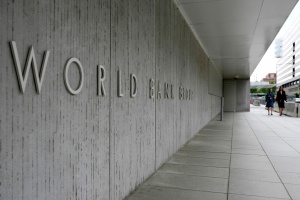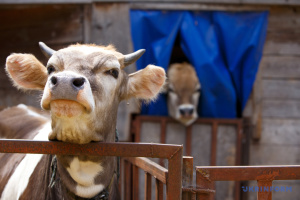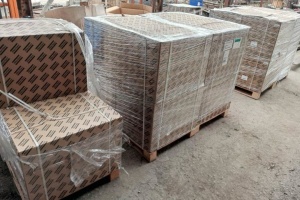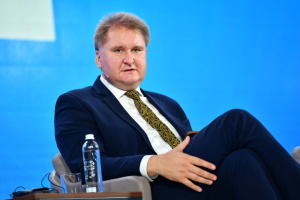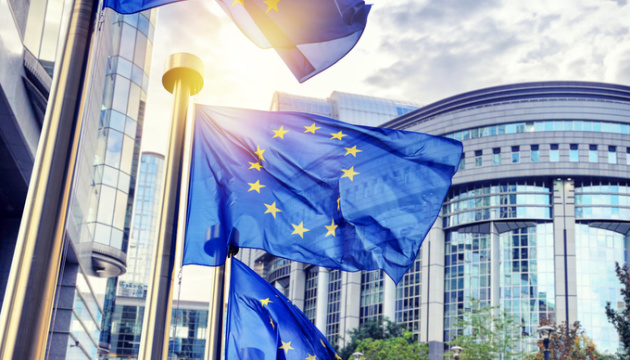
EC not yet decided to extend ban on agri-imports from Ukraine
This was announced in Brussels at a briefing by the EC's spokesperson for agriculture and trade Miriam Garcia Ferrer, an Ukrinform correspondent reports.
The EC's spokeswoman said that no decision has been made at this stage, the discussion is ongoing. The decision will probably be made at the end of the day today.
She noted that the EC is in constant contact with the government of Ukraine and the authorities of five countries that may be affected by such restrictions on imports of agricultural products from Ukraine. According to the spokesperson, the first meeting of the coordination platform created to address this issue took place last Friday, in accordance with the measures agreed on May 9 at the level of the President of the EC Ursula von der Leyen and the President of Ukraine Volodymyr Zelensky.
Five EU countries (Poland, Hungary, Slovakia, Romania, and Bulgaria) attended the coordination platform's meeting. They considered ways to improve the work of the "solidarity lanes" to increase the efficiency of Ukrainian products' transit through neighboring countries to their destinations. Such coordination meetings will be held regularly.
Ferrer reminded that the EU is aiding Ukraine in connection with the difficult situation the country is facing after the unprovoked Russian invasion. In this context, the EU has just decided to extend for another year the regulatory rules that eliminate tariffs and duties on products from Ukraine. This will allow Ukraine to continue to trade not only in the EU market but also with countries outside of it.
Ferrer added that the restrictive measures could be aimed at preventing four types of products (wheat, corn, sunflower seeds and rapeseed) from being imported to these countries (allowing only transit). The restrictions will be for a very short period and will apply to imports to the mentioned countries only. They do not apply to markets in other EU countries or beyond. This is very important to demonstrate the EU's solidarity and support for Ukraine, the spokesperson emphasized.
Answering journalists' questions, she reminded that the EC insists on the abolition of unilateral restrictions on agri-imports imposed by Ukraine's neighbors. The EC calls for measures agreed upon at the EU level to be applied instead. Today, the only country that has not lifted such unilateral bans is Hungary. This country does not allow the EC to aid farmers in the five EU countries, for which the EU has allocated EUR 100 million from the Agricultural Reserve Fund. The spokesperson noted that the EC is in contact with the Hungarian authorities and hopes that a decision will be made soon.
As reported, on May 25, the EU Council approved a regulation extending the duty-free trade regime between the EU and Ukraine. It prolongs the suspension of all customs duties, quotas, and trade remedies on Ukrainian exports to the EU for another year, until June 2024. These regulatory rules come into force on June 6 this year.
At the same time, the blockade of the Black Sea ports by Russia led to a sharp increase in the volume of transportation of Ukrainian grain and other agricultural goods by land, through "solidarity lanes" on the borders with neighboring countries. This significantly affected the domestic market of these countries and caused protests from local farmers.
On April 28, the EC agreed with four of Ukraine's neighboring countries (Bulgaria, Hungary, Poland, and Slovakia) on a package of measures to be implemented after they lifted their unilateral actions against agri-imports from Ukraine. This package restricts imports of four key products from Ukraine (wheat, corn, rapeseed and sunflower seeds) to the territory of these countries, as well as Romania. Although, the transit of such goods to other EU countries and the world market is allowed.
These restrictions have been in effect until today, June 5, and may be extended under the terms of extraordinary trade exemptions provided for by the new EU-Ukraine duty-free trade regime.
The day before, following a meeting with EU agriculture ministers, Ukraine's Agriculture Minister Mykola Solskyi called on the EU not to extend restrictive measures beyond June 5. He called the possible decision to ban Ukrainian agricultural imports to neighboring countries "the worst possible one".

